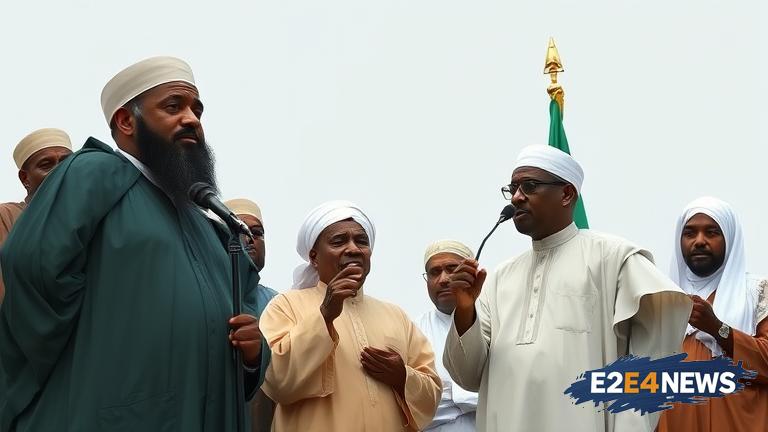The Nigerian government’s decision to establish a deal with Israel has been met with fierce criticism from various quarters, including the Ulama, a group of Islamic scholars. The deal, which was announced recently, has been seen as a betrayal of the Palestinian cause and a departure from Nigeria’s traditional stance on the Israeli-Palestinian conflict. The Ulama, in a statement, expressed their disappointment and disillusionment with the government’s decision, arguing that it goes against the principles of justice and fairness. They also accused the government of compromising the country’s sovereignty and dignity by engaging in such a deal. Other groups, including human rights organizations and civil society groups, have also joined in the condemnation, arguing that the deal is a slap in the face of the Palestinian people and a blow to the country’s reputation as a champion of human rights. The government, however, has defended the deal, arguing that it is in the best interest of the country and will help to promote economic cooperation and development. Despite this, the criticism continues to mount, with many calling for the government to reconsider its decision and prioritize the interests of the Palestinian people. The deal has also sparked a heated debate about the country’s foreign policy and its stance on the Israeli-Palestinian conflict. Many have argued that the government’s decision is a departure from the country’s traditional stance of supporting the Palestinian cause and a betrayal of the trust placed in it by the Nigerian people. The Ulama and other groups have vowed to continue their opposition to the deal, arguing that it is a matter of principle and conscience. They have also called on the government to be transparent about the terms of the deal and to provide a clear explanation for its decision. The government, on the other hand, has maintained that the deal is a necessary step towards promoting economic development and cooperation. The controversy surrounding the deal has also highlighted the deep divisions within the country, with some groups supporting the government’s decision and others opposing it. The debate has also sparked a wider discussion about the country’s role in international affairs and its commitment to human rights and social justice. As the controversy continues to unfold, it remains to be seen how the government will respond to the criticism and whether it will reconsider its decision. The Ulama and other groups have made it clear that they will not back down and will continue to fight for what they believe is right. The government, on the other hand, has maintained that it will not be swayed by criticism and will continue to pursue its goals and objectives. The deal has also sparked a reaction from the international community, with some countries expressing their support for the Palestinian cause and others welcoming the deal as a positive step towards promoting economic cooperation. The controversy has also highlighted the complex and sensitive nature of the Israeli-Palestinian conflict, with many countries struggling to find a balance between their economic and strategic interests and their commitment to human rights and social justice. As the situation continues to evolve, it remains to be seen how the government will navigate the complex web of interests and opinions and whether it will be able to find a solution that satisfies all parties. The Ulama and other groups have made it clear that they will continue to monitor the situation closely and will not hesitate to speak out against any decision that they believe is unjust or unfair. The government, on the other hand, has maintained that it will continue to pursue its goals and objectives, even in the face of criticism and opposition. The controversy surrounding the deal has also sparked a wider discussion about the role of religion in politics and the impact of foreign policy decisions on domestic affairs. Many have argued that the government’s decision is a reflection of its lack of commitment to the principles of justice and fairness and its willingness to compromise the country’s sovereignty and dignity for the sake of economic gain. Others have argued that the deal is a necessary step towards promoting economic development and cooperation, even if it means compromising on some principles. As the debate continues to rage on, it remains to be seen how the government will respond to the criticism and whether it will be able to find a solution that satisfies all parties.
